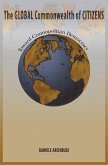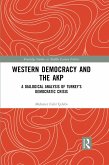In the post-Cold War era, why has democratization been slow to arrive in the Arab world? This book argues that to understand support for the authoritarian status quo in parts of this region--and the willingness of its citizens to compromise on core democratic principles--one must factor in how a strong U.S. presence and popular anti-Americanism weakens democratic voices. Examining such countries as Jordan, Kuwait, Morocco, Palestine, and Saudi Arabia, Amaney Jamal explores how Arab citizens decide whether to back existing regimes, regime transitions, and democratization projects, and how the global position of Arab states shapes people's attitudes toward their governments.
While the Cold War's end reduced superpower hegemony in much of the developing world, the Arab region witnessed an increased security and economic dependence on the United States. As a result, the preferences of the United States matter greatly to middle-class Arab citizens, not just the elite, and citizens will restrain their pursuit of democratization, rationalizing their backing for the status quo because of U.S. geostrategic priorities. Demonstrating how the preferences of an international patron serve as a constraint or an opportunity to push for democracy, Jamal questions bottom-up approaches to democratization, which assume that states are autonomous units in the world order. Jamal contends that even now, with the overthrow of some autocratic Arab regimes, the future course of Arab democratization will be influenced by the perception of American reactions. Concurrently, the United States must address the troubling sources of the region's rising anti-Americanism.
While the Cold War's end reduced superpower hegemony in much of the developing world, the Arab region witnessed an increased security and economic dependence on the United States. As a result, the preferences of the United States matter greatly to middle-class Arab citizens, not just the elite, and citizens will restrain their pursuit of democratization, rationalizing their backing for the status quo because of U.S. geostrategic priorities. Demonstrating how the preferences of an international patron serve as a constraint or an opportunity to push for democracy, Jamal questions bottom-up approaches to democratization, which assume that states are autonomous units in the world order. Jamal contends that even now, with the overthrow of some autocratic Arab regimes, the future course of Arab democratization will be influenced by the perception of American reactions. Concurrently, the United States must address the troubling sources of the region's rising anti-Americanism.









